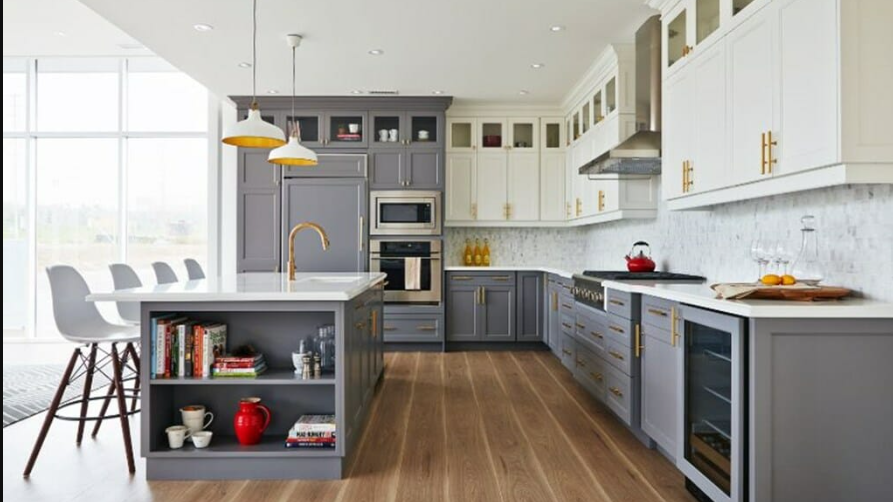Quartz Countertops Guide for Durable and Stylish Kitchen Surfaces
Quartz countertops have become a popular choice for kitchens and bathrooms due to their durability, low maintenance, and wide range of design options. Made from natural quartz combined with resins and pigments, they offer a strong and versatile surface suitable for both residential and commercial use.
They provide a durable, non-porous surface that resists stains, scratches, and heat, making them ideal for busy households and design-conscious homeowners alike. Beyond functionality, quartz countertops come in many colors and patterns, allowing for customization that fits various styles without the upkeep required by natural stone.
Understanding the pros and cons of quartz helps buyers make informed decisions about its value compared to alternatives like granite or marble. This guide will cover essential details on quartz’s composition, care, and cost to help readers choose the right countertop for their needs.
What Are Quartz Countertops?
Quartz countertops are engineered surfaces designed to combine durability with aesthetic appeal. They consist primarily of natural minerals bonded with resins, offering a consistent finish that can replicate natural stone. Their distinct composition and manufacturing process set them apart from traditional stone options.
Quartz Composition and Manufacturing
Quartz countertops are made by combining roughly 90% ground quartz crystals with 8-10% resins, polymers, and pigments. This mixture is compressed and cured under extreme heat and pressure to form a hard, uniform surface.
The engineered nature allows control over color and pattern uniformity, unlike natural stones. The resin content makes quartz nonporous, reducing the need for sealing and improving stain resistance. However, exposure to high heat can damage the resin, so heat protection is necessary.
See also: How to Ensure Your Garage Door is Safe for Children and Pets
Distinction From Natural Stone
Unlike granite or marble, quartz countertops are not cut from a single block of stone. Instead, they are manufactured materials, giving consistent patterns and colors throughout the slab. This eliminates the variability often found in natural stone.
Quartz surfaces are less porous and more resistant to staining due to the resin binders. They do not require frequent sealing, making maintenance simpler compared to granite. However, quartz can be scratched or damaged by excessive heat, whereas some natural stones tolerate heat better.
Popular Styles and Finishes
Quartz countertops come in a wide range of colors and finishes. Common finishes include polished, honed (matte), and textured surfaces. These options allow homeowners to customize appearance to match various kitchen or bathroom designs.
Patterns can mimic natural stones such as marble or granite, featuring veining or speckled effects. Some manufacturers produce bold, uniform colors not typically found in natural stone. This versatility ensures quartz can fit both traditional and contemporary aesthetics.
Advantages and Considerations
Quartz countertops combine physical strength, ease of upkeep, and extensive style options to meet various homeowner needs. Understanding their lasting qualities, daily care requirements, and aesthetic adaptability helps in making an informed material choice.
Durability and Longevity
Quartz is engineered from about 90-95% natural quartz crystals bonded with resin. This composition creates a hard, non-porous surface resistant to scratches, chips, and stains. It performs well under regular kitchen use, maintaining its appearance for many years.
Unlike natural stone such as granite or marble, quartz does not require sealing. However, it is not completely heatproof and can be damaged by direct contact with high heat sources. Users should place hot pans on trivets to avoid surface damage.
Quartz’s resistance to moisture and bacteria makes it suitable for busy kitchens and bathrooms where hygiene is critical.
Maintenance and Cleaning
Quartz countertops are low maintenance due to their sealed, non-porous surface. Cleaning requires only mild soap, water, and a soft cloth. Harsh chemicals and abrasive scrubbers should be avoided to prevent dulling the surface.
Routine wiping of spills and regular cleaning keeps quartz looking its best. Stains from oil, wine, or coffee are unlikely to set in due to quartz’s density.
Periodic inspections for chips or cracks can help preserve the countertop’s integrity. Compared to natural stone, quartz demands less ongoing care, appealing to homeowners who prefer convenience.
Design Versatility
Quartz offers a wide range of colors, patterns, and finishes due to its engineered nature. It can mimic the look of natural stone or present bold, uniform designs not found in granite or marble.
Its versatility suits various styles from modern minimalist to traditional kitchens. Quartz slabs come in matte, polished, or textured finishes, allowing customization to fit design goals.
Manufacturing also allows for large, consistent slabs without the natural imperfections found in stone. This controlled appearance benefits homeowners seeking clean, uniform surfaces.






